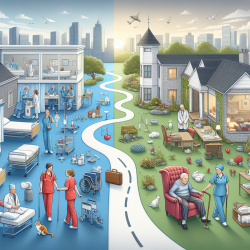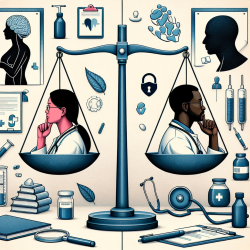Introduction
In the face of increasing mass casualty incidents (MCIs), the need for efficient and effective prehospital trauma care is more critical than ever. The recent study, "Prehospital Trauma Care in Disasters and Other Mass Casualty Incidents – A Proposal for Hospital-Based Special Medical Response Teams," offers valuable insights into how advanced trauma-trained teams can significantly improve outcomes during such events. This blog will explore the key findings and propose actionable steps for practitioners to enhance their skills and response strategies in prehospital trauma care.
Understanding the Current Landscape
The traditional "Scoop and Run" model, predominant in the United States, emphasizes rapid transport to hospitals with minimal on-scene care. While effective in urban settings with short transport times, this model falls short during MCIs where immediate advanced care is crucial. In contrast, the European "Stay and Play" model incorporates advanced medical interventions at the scene, led by trauma-trained physicians, which can be pivotal during MCIs.
The Proposal for Special Medical Response Teams (SMRT)
The research proposes the formation of Special Medical Response Teams (SMRT), which would rapidly deploy advanced trauma-trained physicians and paramedics to the scene of MCIs. These teams would provide higher levels of medical and surgical care in the prehospital setting, addressing two critical issues: increased injury severity and the importance of accurate triage.
- Advanced Trauma Care: SMRT would enable early damage control and lifesaving resuscitation measures, potentially improving patient outcomes.
- Accurate Triage: The presence of advanced trauma-trained personnel would reduce over-triage and ensure resources are allocated to those in most need.
Benefits of Implementing SMRT
Incorporating SMRT into existing emergency response frameworks can lead to several benefits:
- Improved Mortality Rates: Studies have shown that the presence of specialized physicians in prehospital settings can significantly reduce mortality rates.
- Enhanced Triage Accuracy: Advanced training allows for more precise triage, reducing the burden on receiving hospitals and ensuring critical care is provided promptly.
- Comprehensive Care: SMRT can perform advanced procedures such as thoracotomy and REBOA, which are beyond the scope of traditional EMS providers.
Encouraging Further Research and Implementation
While the concept of SMRT is promising, further research and pilot programs are essential to refine these teams' deployment and integration into existing systems. Practitioners are encouraged to explore the full potential of SMRT by engaging in further studies and collaborations with trauma care experts.
Conclusion
As MCIs become more frequent, the evolution of prehospital trauma care is imperative. The implementation of Special Medical Response Teams offers a promising solution to enhance survivability and improve outcomes during such incidents. By adopting advanced trauma care strategies and encouraging further research, practitioners can significantly impact public safety and emergency response effectiveness.
To read the original research paper, please follow this link: Prehospital Trauma Care in Disasters and Other Mass Casualty Incidents – A Proposal for Hospital-Based Special Medical Response Teams.










